In 2010, a group of Puyuma Aboriginal musicians from Taitung’s Nanwang Tribe (南王部落) performed On the Road (很久沒有敬我了你) at Taipei’s National Concert Hall (國家音樂廳). Unusual for a musical performed at Taiwan’s top venue for classical music, it blended tribal sounds and dance with contemporary music and a Western orchestra.
But the ambitious project, a collaboration among record label Taiwan Colors Music (TCM, 角頭音樂), the National Symphony Orchestra (NSO, 國家交響樂團) and National Theater & Concert Hall (NTCH, 國家兩廳院), didn’t end when the curtain dropped. Kara-Orchestra (很久沒有敬我了妳), a cinematic complement to the musical, opens in theaters nationwide today.
Directed by Wu Mi-sen (吳米森) and produced by TCM President Zhang 43 (張四 十 三), the film examines topics — why and how Aboriginal music is altered or made palatable for a more sophisticated audience, what it means to be Taiwanese — that its theatrical counterpart only hinted at.
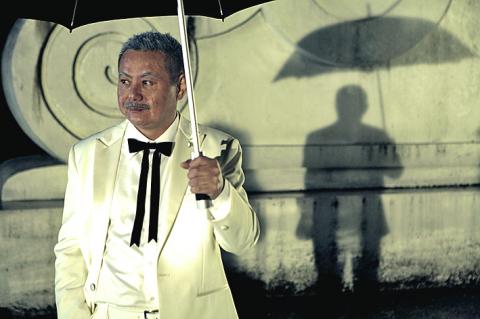
Photo courtesy of Activator Marketing Company
Incidentally, The Making of On The Road (很久), a 2011 documentary by Amis director Lungnan Isak Fangas, raised many of the issues addressed in Kara-Orchestra. That film featured interviews with artists and musicians who participated in the musical, including Hu, Hao-en, Pau-dull (陳建年) and music producer Cheng Chieh-jen (鄭捷任), and takes a deeper look into the question concerning indigenous music and its admission to the Han-Chinese centric system.
CONVENTIONAL STRUCTURE
Those familiar with Wu’s poetic and cinematic vocabulary, so eloquently shown in Fluffy Rhapsody (起毛球了, 2000) and Amour-Legende (松鼠自殺事件, 2006), will be surprised at the conventional three-act structure of this new offering. A young female musician, Feng Huo-yun (Youki, 侑紀), is appointed by NTCH director Chang San-lang (Tsai Chen-nan, 蔡振南) as the NSO’s new conductor. Conflicts erupt between Feng and principal violinist Tung jen-to (Leon Dai, 戴立忍) because Tung doubts the young conductor’s ability to lead the orchestra.
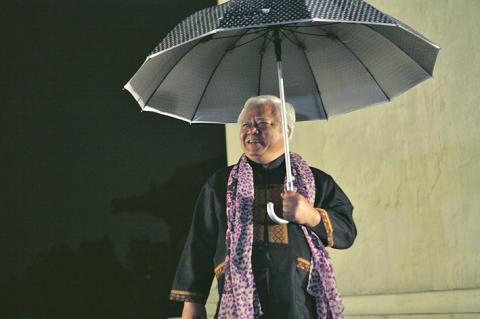
Photo courtesy of Activator Marketing Company
THE PRANK
During a rehearsal, an Aboriginal woman appears in the audience. She sings for a brief moment, and then disappears. It later turns out to be a joke by Tung and his friends, played by the legendary Kimbo Hu (胡德夫), Samingad (紀曉君) and Yangui Yasiungu (安歆澐), meant to show that Aboriginal music is as good as any show.
Tung’s mischievous prank, however, inspires Chang. Feng and Dai are then sent to the Aboriginal village to collaborate on a work. The two meet villagers and musicians such as Hao-en (昊恩) and the Nanwang Sisters (南王姐妹花). Feeling excluded at first, Feng gradually earns her place and reconciles with Tung.
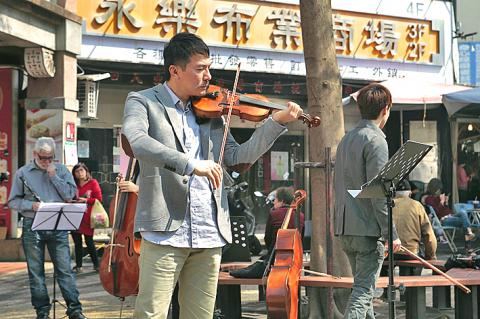
Photo courtesy of Activator Marketing Company
Back in Taipei, Chang loses his job to a wealthy Chinese businessman, amusingly played by exiled Chinese dissident Wang Dan (王丹). It’s promptly replaced with a Chinese music production.
The makeshift group of musicians, however, are determined to retake the stage.
SOCIAL ISSUES
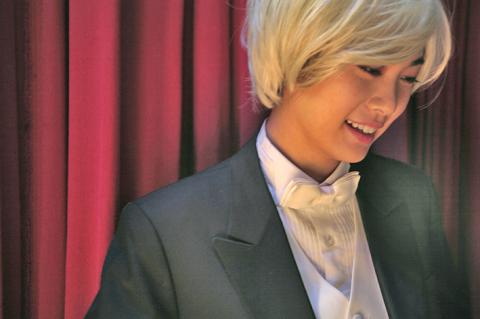
Photo courtesy of Activator Marketing Company
While promising, the film lacks structure and dramatic nuance. The initial antagonism and later reconciliation between the two leads are less narratively cogent. Japanese-Taiwanese actress Youki might be good for a role that metaphorically reflects Taiwan’s past and present, but there is little intensity in her portrayal of an over-achieving young woman searching for her roots.
The film succeeds when it adopts humor to tackle serious issues. The question of whether tribal music and dance should be performed in a national theater is playfully touched on in a sequence where tribal villagers, who have no understanding of musical notation, happily use a karaoke machine to practice.
The presence of many indigenous musicians showing off their singing prowess is one of the movie’s many pleasures. Cameo appearances by public figures such as architect Roan Ching-yueh (阮慶岳), writer and former Taipei mayoral candidate Neil Peng (馮光遠) and Lin Wen-yi (林文義), a well-known novelist and social critic, suggest that the film’s non-Aboriginal characters are on their own kind of inner journey while discovering the nation’s indigenous heritage.

Photo courtesy of Activator Marketing Company
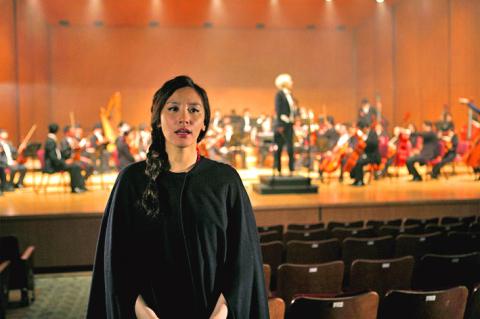
Photo courtesy of Activator Marketing Company
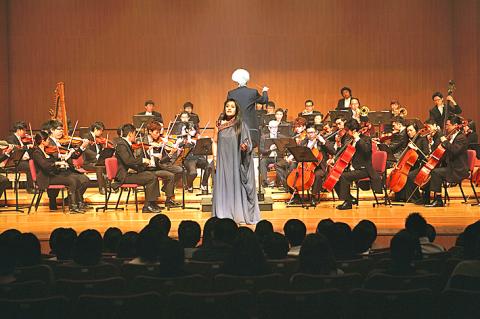
Photo courtesy of Activator Marketing Company
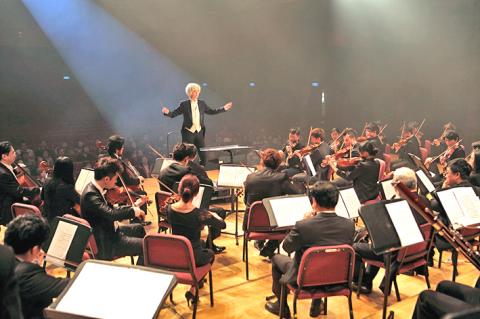
Photo courtesy of Activator Marketing Company

A vaccine to fight dementia? It turns out there may already be one — shots that prevent painful shingles also appear to protect aging brains. A new study found shingles vaccination cut older adults’ risk of developing dementia over the next seven years by 20 percent. The research, published Wednesday in the journal Nature, is part of growing understanding about how many factors influence brain health as we age — and what we can do about it. “It’s a very robust finding,” said lead researcher Pascal Geldsetzer of Stanford University. And “women seem to benefit more,” important as they’re at higher risk of

Eric Finkelstein is a world record junkie. The American’s Guinness World Records include the largest flag mosaic made from table tennis balls, the longest table tennis serve and eating at the most Michelin-starred restaurants in 24 hours in New York. Many would probably share the opinion of Finkelstein’s sister when talking about his records: “You’re a lunatic.” But that’s not stopping him from his next big feat, and this time he is teaming up with his wife, Taiwanese native Jackie Cheng (鄭佳祺): visit and purchase a

April 7 to April 13 After spending over two years with the Republic of China (ROC) Army, A-Mei (阿美) boarded a ship in April 1947 bound for Taiwan. But instead of walking on board with his comrades, his roughly 5-tonne body was lifted using a cargo net. He wasn’t the only elephant; A-Lan (阿蘭) and A-Pei (阿沛) were also on board. The trio had been through hell since they’d been captured by the Japanese Army in Myanmar to transport supplies during World War II. The pachyderms were seized by the ROC New 1st Army’s 30th Division in January 1945, serving

The People’s Republic of China (PRC) last week offered us a glimpse of the violence it plans against Taiwan, with two days of blockade drills conducted around the nation and live-fire exercises not far away in the East China Sea. The PRC said it had practiced hitting “simulated targets of key ports and energy facilities.” Taiwan confirmed on Thursday that PRC Coast Guard ships were directed by the its Eastern Theater Command, meaning that they are assumed to be military assets in a confrontation. Because of this, the number of assets available to the PRC navy is far, far bigger